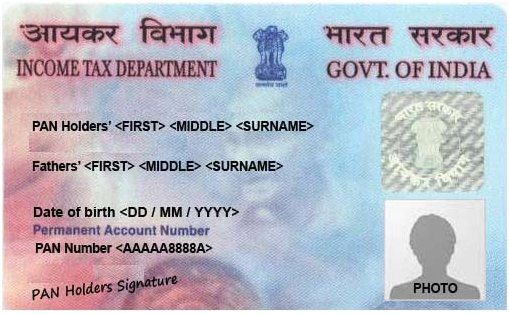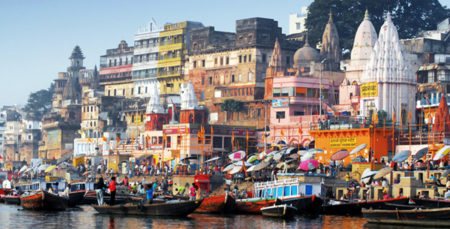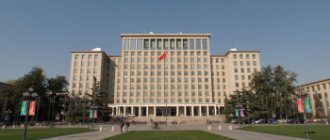Despite a fairly wide range of problems associated with overpopulation, poor infrastructure, poverty and corruption, the number of migrant workers in India is constantly growing. Since the early 90s of the last century, local authorities have carried out a number of reforms, which made it possible to attract a large amount of investment, increase trade and put the economy on a market track. Today, India is considered one of the most dynamically developing countries with enormous potential.
Working in India for Russians and Ukrainians in 2021 may not bring the same level of income as in developed European countries, but, on the other hand, it will allow them to enjoy the ancient culture and traditions of this amazing state. About half of the Indian workforce is employed in agriculture, up to 30% is in the service sector and only a fifth is in industry. Unemployment in India is around 6.5% . In terms of the number of working-age population, which is about 500 million people, India is second only to China.
Competition in the local labor market is quite significant, making it very difficult for foreigners to apply for vacancies. Nevertheless, qualified specialists with good knowledge of English can easily find work in India. Particular attention should be paid to the information technology sector, tourism, finance, pharmaceutical production, and construction. Next, let's talk in more detail about the features of working in India and options for finding a job in 2021.
Professions in demand
In the Indian labor market in 2021, there is a need for:
- teachers (school, university),
- doctors of narrow specialization,
- technical translators,
- technical writers,
- programmers (different programming languages),
- IT specialists,
- experts in the field of computer technology,
- excursion guides.
Every year, the demand for Bellydance (belly dance) dancers remains high in India. This type of work pays $800–1000 per month. The schedule is mostly nights and seven days a week. Contracts are usually short-term - for 3–6 months. They only accept girls with a model build and ages from 18 to 27 years.
However, the professions of a dancer, artist, fashion designer and the like are related to work of a specific nature. This is the same case when show business sets the tone in the labor market. If we consider professions related to the industrial production sector and consumer services, there is also a need for relevant specialists.
Features of doing business
Before you decide to take such a step, you need to understand the peculiarities of doing business in India for Russians. The first thing you need to pay attention to is high competition and poverty of the population. High competition is caused by the fact that in this state there is high unemployment and, accordingly, low solvency of the population.
Therefore, this state attracts potential employers. Poverty is due to the fact that the average salary in the country does not exceed $100.
It is the focus on these two factors that reflects the peculiarities of doing business in this country. Only those businessmen who have a clear strategy for conducting business and have developed a business plan taking into account realities can survive here. If this is not the case, then it is better not to risk it at all.
It should also be noted that the government encourages various investors and gives them some tax benefits. Therefore, you can open a business in India with a minimum amount of money on hand, which is suitable for Russians who do not have a large amount of financial resources. The areas of business in which you can earn money are the following: high technology; tourism; catering.
Other niches require large capital investments and a clear action plan. The taxation system should also be noted. It will be of particular interest to Russians, since the policy of this country is to reduce tax rates and not place a large fiscal burden on businessmen from other countries.
It is important to know that you can open a business in India with $1,000 in hand, since the minimum authorized capital with which you can register a business is $500-600.
Employment procedure
The procedure for official employment in the country includes obtaining a work visa and issuing a work permit.
Applying for a work visa
Documents Basic list (needs to be clarified at the consular center):
- two copies of the completed application form;
- two photographs 3.5×4 or 5×5;
- a copy of the Russian passport (except for blank pages);
- international passport;
- labor contract;
- copy of diploma(s);
- certificate from a doctor for HIV.
Price
A multiple entry Indian visa costs about $120. Payment is made in rubles at the current exchange rate. Currently, the visa fee is 6991 rubles.
Work permit
A work permit in India requires a work visa and a residence permit in the country. Employment of a foreign worker is possible provided that the employing company:
- registered in India under the Companies Act;
- is implementing a project in India.
The condition of having a salary of at least 25 thousand dollars does not apply to the following categories of employees:
- ethnic chefs;
- translators and teachers of foreign languages (except English);
- employees of embassies and consulates.
Registration of a worker upon arrival in the country
If the incoming employee's work visa is for a period of more than 180 days, then additional registration with the Foreigners Regional Registration Office (FRRO) will be required. The corresponding stamp on the sticker must be placed within 14 days of arrival in the country. To register, you must submit the following documents:
- application in 4 copies;
- valid international passport;
- 4 photographs 3.5x4.5 cm;
- confirmation of the presence of a residence permit in the country;
- a copy of the certified employment contract.
When changing residence, the employee must notify the FRRO staff.
Employment procedure
Half of the domestic workforce is employed in agriculture, about a third in show business and services, and only 20% in industry.
Where there are about half a billion working-age population, it is difficult for a foreigner to find a job. This is also due to the fact that the legislation encourages owners of enterprises and other businesses to first offer places to Indians.
Applying for a visa to India for Russians - how to open an electronic one via the Internet?
However, for highly qualified people, finding a job in India is not difficult.

Procedure for obtaining permission:
- The employer and applicant are checked for compliance with several parameters:
- The applicant has high qualifications, confirmed by a diploma, preferably from a European university. British education is preferred.
- Knowledge of languages – English and Hindi. A plus will be the dialect of the province to which the invitation was received.
- The annual income offered to the applicant is $25,000 or more. For translators, teachers of foreign languages (except English) and ethnic culinary chefs, an exception is made in terms of salary.
- The vacancy was offered to Indians, but no one responded.
- The number of foreign employees at the employer does not exceed 20 people, and this constitutes no more than 1% of the entire staff.
- The company that placed the place is registered as a resident, or as a representative office or branch of a foreign company.
- After checking all the conditions and requirements, an employment contract is signed.
- When receiving a visa, the name of the hiring company is indicated in the sticker.
Upon arrival, the foreign worker is checked to ensure that he or she is complying with Indian laws, such as paying taxes and other obligations.
There are a number of professions for which you do not need to look for an employer in advance, and if you confirm the appropriate qualifications, you can get a work visa:
- high-level culinary specialists and cooks;
- artists;
- coaches and athletes with certain achievements;
- language teachers and translators (except English);
- middle and top management, including financial;
- entrepreneurs;
- engineers and technicians.
How can Belarusians apply for a visa to India - how to spend an unforgettable vacation in Goa?
Wage
As in any country in the world, incomes vary depending on industrial characteristics and the degree of infrastructure development in a particular area. Rating of cities with the highest average annual earnings (in US dollars):
- Mumbai - 827.0;
- New Delhi - 610.15;
- Kochi - 530.2;
- Kolkata - 502.65;
- Goa – 363.
Mumbai, also called Bombay, is a major hub for international transport. In it, luxury coexists with poverty, as well as an extremely high crime rate. To get a job, you must be fluent in English. A large number of commercial organizations' offices are concentrated in New Delhi. Main areas of employment: trade, tourism, banking and information technology.
By profession
| Profession | Minimum salary, in rupees | Minimum salary, in rubles | Maximum salary, in rupees | Maximum salary, in rubles |
| Programmer | 60 000 | 55 000 | 150 000 | 137 000 |
| Dancer | 53 000 | 50 000 | 75 000 | 68 000 |
| Dentist | 40 000 | 36 000 | 50 000 | 45 000 |
| Administrator at the hotel | 46 000 | 42 000 | 60 000 | 55 000 |
| Biologist | 40 000 | 36 000 | 52 000 | 47 000 |
| Senior Manager | 45 000 | 41 000 | 70 000 | 64 000 |
| Animator | 43 000 | 39 000 | 65 000 | 59 000 |
Working in India: a land of contrasts and hard work
When choosing a country to continue writing a series of articles about the peculiarities of working in other countries, our gaze settled on India. This country is attractive not only for its unique culture, but also for its very interesting labor features and methods of personnel management. However, we note that a time tracking system would not hurt here either.
When starting a story about India, one cannot fail to note two important aspects:
- There is a huge difference in mentality in this country and, in connection with this, a lot of peculiarities of work, management and approaches to personnel management.
- India's economy is one of the largest in the world in terms of GDP. According to WTO statistics, India's share in world exports of goods is 1.66% (19th place), in imports - 2.47% (12th place). India's share in global exports of services is 3.3% (6th place), in imports - 2.9% (7th place).
India is a country of contrasts. Here, in close proximity, live the richest people on the planet and the “untouchables” - people who do not even have the means for food and housing. Business and the nature of work are influenced, first of all, by the division of the population (1 billion 200 million people) into castes. Depending on their belonging to a certain caste, Indians work, marry, and make friends. In ancient India, castes were divided into 4 groups: priests were classified as brahmins, warriors were classified as kshatriyas, the Vaishya caste included working people, and servants and laborers were classified as sudras. In modern India, castes are divided into more than 3,000 subgroups.
His future work depends on what caste a person belongs to. There are many nuances, but if explained using simple examples, then Brahmins (high caste) cannot work as laborers, and Shudras (low caste) can only be servants and do not dare even think about working “by their hearts.”
Office work
Many foreigners experience real culture shock when they see the conditions in which representatives of the lower Indian castes work. However, office work, which is familiar to Europeans, in India is more or less similar to what we are used to.
Working hours vary from city to city, but the average employee's day starts at 9:00 a.m. and ends at 6:00 p.m. An individual schedule is also possible, with the consent of the employer. Typically, employees choose a schedule from 8:30 to 17:00.
What sets Indian workers apart from the rest of the world can be called their “special relationship with time.” That's why we said at the very beginning that local companies would greatly benefit from a time tracking system. Foreign employees, partners and clients of local companies joke about Indian Standard Time (IST). The joke is that this abbreviation can be deciphered as Indian Stretchable Time, i.e. “Indian rubber time”. Indeed, calm and slow Indians consider it completely normal if the hour allotted for completing work turns into two, three or even five. Still, with a time tracking system, the discipline of Indian employees could increase and meeting deadlines would become a habit. In the meantime, an hour can only truly remain an hour if you're lucky.
The same goes for meetings: if the meeting is scheduled for 15:00, it is not at all necessary to arrive at this time. With a high degree of probability, all invitees will gather half an hour to an hour later. It should be noted that not all Indian companies are so time lax. Organizations that are “Western-oriented” adhere to strict standards: after all, the “tradition” of mandatory recording of working time and a careful attitude towards it has an effect.
Due to high competition for jobs, it is not customary to take vacations in India. In addition, Indians are frugal; they consider travel expenses unnecessary and prefer to receive monetary compensation for their vacation. According to stories from foreign employees, Indians take vacations during school exams to help their children prepare for them.
At work, Indian employees give preference to personal relationships rather than professional qualities. If you were able to make friends with the team, rest assured that work will improve. Indian companies have something in common with Japanese companies: they, like the Japanese, have a pronounced hierarchy.
About the advantages
India is a beautiful country with a unique culture, interesting traditions and magical nature. This is the first and, as it seems to us, main advantage of working in this country. Here is a review from an expat (as qualified foreign employees are called in India) who moved to India for permanent residence:
“The most pleasant thing about moving to a new place was the view of the ocean from the office. After the Moscow rush, nerves and stress, this view, and especially the opportunity in difficult moments to go to the ocean to listen to its whisper, are absolutely priceless.”
Indian IT and multinational companies are preparing another significant advantage: if an employee changes jobs (at his own request and without significant complaints from the previous management), he can count on a salary increase of at least 30%. A higher position is also expected. It is important that during the interview the candidate is not even offered similar conditions or a lower position than at the previous job.
In India, labor migration is common. In search of a “better life,” employees move from one end of the country to the other. If the candidate is a family man, the employing company can pay for the move or at least help as much as possible.
About the cons
Most Indian companies work six days a week. Business owners who prefer a five-day schedule are rather an exception. On Saturdays, company personnel work half or full time, and in some companies every second Saturday of the month is working.
There is high competition in the country not only among companies, but also among hired personnel. Everyone values their place, and therefore there is no time for fun at work.
However, gossip in the office is not the prerogative of Russian employees; in India, conversations on abstract topics, discussion of someone else’s personal life are not just the norm, but a way of life. In general, as expats write on forums, Indians perceive the whole world as one big family. Therefore, it is completely normal if a colleague you don’t know well asks you about personal matters and gives you advice that you usually hear only from relatives or your best friend.
Officially getting a job as an expat is not so easy. By law, the minimum wage for a foreigner in India must be at least $25,000 per year. Many Indian companies simply cannot afford to hire such an expensive employee.
Internship in India
A good opportunity to gain work experience in India and improve your English or Hindi is an internship in one of the Indian companies. The organization of such internships is carried out by various training and educational centers, which, as a rule, further supervise the interns during their stay in India. The organizer undertakes:
- searching for an internship location;
- visa support;
- assistance in paperwork;
- organizing a telephone interview with the employer;
- housing and food;
- delivery to the place of internship.
Among the requirements for applicants for internship:
- university diploma;
- valid international passport;
- confident command of the English language.
Internship programs are designed to gain work experience in the hotel and restaurant business, IT technology, and social sphere. In addition, there are volunteer internship programs (for example, in the field of healthcare), which allow you to get acquainted with the peculiarities of organizing work processes in various areas of the economy.
Features of business in India
Micro-businesses are incredibly common in India. There are many unusual businesses to be found here. Enormous money, for example, is made from collecting garbage (this business is usually carried out by representatives of the lower castes and the poor). At the same time, there are not enough jobs in the country, so the government is interested in stimulating the development of private entrepreneurship. The residents themselves actively contribute to this by going into microbusiness.
The country's working population is estimated to be 500,000,000, of whom 250,000,000 have extreme difficulty finding work. Accordingly, wages in the country are extremely low. Also, do not forget that India at this stage is an agrarian-industrial country. 60% of the population here is employed in agriculture. Most entrepreneurs start in handicrafts and agriculture.
Jobs and salaries in India in 2019
Work and available vacancies in India for Russians, Ukrainians, Belarusians and other citizens of the CIS countries in 2021 are presented in many sectors of the economy. First of all, we are talking about qualified specialists.
The priority areas are the following: information technology and software development, healthcare and pharmaceutical production, tourism, construction, biotechnology, the automotive industry, the financial and banking sectors.
The average salary in India in 2021 is around $4 per day. Of course, a foreigner cannot rely on this indicator, since much depends on the region and field of activity.
In India it is quite difficult to find a job, there are also quite high taxes - about 25%. When you indicate the amount of wages, indicate it already with the deduction of all taxes. Before you go to India, consider where you will live. After all, housing in the country is not as cheap as you might think.
Unfortunately, a huge number of the local population lives below the poverty line. For most workers, wages of $100-$120 per month are considered high.
Foreign specialists are better off targeting vacancies in India in representative offices of foreign companies and large corporations; here you can earn $2,000 or more.
Some citizens of the post-Soviet space find work in India in the tourism and service sectors, for example, as guides, translators, photographers, cooks, massage therapists, animators, and dancers. The Indian resort state of Goa is considered a particularly popular place. For girls with an attractive appearance, there are vacancies in the modeling business. There is also a certain demand for social workers. Salaries can be completely different, on average from $300 per month.
Taxation in the country
Basic taxes:
- All individuals pay up to 30% of personal income.
- For legal entities, an interest rate of 30-42% is provided for local and foreign enterprises, respectively.
- The rate on capital gains depends on the type - short-term or long-term. The degree of taxation is from 10 to 20%.
- The VAT level varies depending on the state and is 16-20%. Charged only on goods.
- State fee - INR 500 and one document, stamp duty of 0.5-7% is charged.
Income tax
Income level, drachmas Duty, %
0 – 200000 0
200001 – 500000 10
500001 – 1000000 20
Over 1000001 30
Where and how to find a job
The most popular city among foreign workers is the capital Delhi. Large global companies are concentrated there and are ready to hire citizens of other countries. In addition to the capital, there are other significant economic centers, such as Kolkata or Mumbai, where the offices of international firms are also located.

In major tourist centers such as Goa, Agra, Kerala, seasonal work is available - as a guide, translator, bartender, animator. But there is a lot of competition in such places, as in all other vacancies that do not require qualifications. Knowledge of English and Hindi will be a bonus.
Sites for finding work in India for Russians will help you get settled. Mostly there are vacancies from the IT sector, doctors, pharmacists, financiers, biotechnologists.
If difficulties arise with the search, it is recommended to contact a recruitment agency, which will easily select suitable options.
Conditions for obtaining a work visa
India primarily protects its laws and citizens, therefore visas will not be issued without complying with a number of requirements:
- The qualifications and education of the employee correspond to the position held. Salary of at least $25 thousand per year.
- Citizens of India cannot apply for the vacancy chosen by a foreigner.
- In the company, a maximum of 1% of employees are foreigners.
- When obtaining a visa, a contract signed by an Indian company is required.
- The foreigner has no debts, unpaid taxes or fines.
Compliance with these requirements will increase your chance of getting a job.
Applying for a work visa
Not everyone can get an E visa. Indian employers primarily hire their fellow citizens, so they will not issue a visa for unskilled work. List of professions eligible for a visa:
- Translators and foreign language teachers.
- Engineers.
- Athletes and coaches.
- Artists.
- Consultants for Indian companies.
- Entrepreneurs planning to start a business.
A visa is opened only if a contract has already been concluded with the employer . Since November 2014, two registration options are available - online and through the consulate.
An online application for a work visa is submitted on the TVOA website, where you need to fill out a form and attach copies of your passport. Application form in English. No later than 3 days after filling it out, you must pay a fee of $60.
If all the data is filled out correctly and the visa is approved, a special code will be sent to your email, which you must save and be ready to present to border control officers upon request.
For those who do not want to apply online, the standard method is available - a visit to the Consulate.
Package of documents for registration:
- Questionnaire. 2 copies.
- Photo. 2 pcs., 3.5x4 cm.

- Copies of completed pages of the passport of a citizen of the Russian Federation.
- International passport.
- Signed contract.
- A copy of a diploma from a Russian or foreign university.
- Medical certificate confirming the absence of HIV.
Upon expiration of the validity period, the visa is extended for another year, but the total period cannot be more than 5 years from the date of issuance of the initial visa . The decision to extend a visa is made by the migration service based on the following data:
- Documents providing grounds for visa extension.
- No violations of the law.
- Payment of taxes by a foreign specialist.
Work permit
There are two types of work visa, for a period of up to 6 months and for a period of more than 6 months. In the first case, a temporary work permit is simply issued for up to 180 days. In the second case, it is mandatory to register at the Regional Office within the first 14 days from the date of entry. To register you must provide the following information:

- Statement.
- International passport.
- Photo. 4 pcs., 3.5x4 cm.
- Proof of residence in India.
- A copy of the signed work contract.
After registration, a special PAN card is issued, which is a document authorizing work activities in India.
Advantages and disadvantages of employment
| pros | Minuses |
| There are opportunities for good earnings | It's difficult to find a job according to your vocation |
| Strict restrictions on the consumption of alcoholic beverages, which has a positive effect on labor productivity | The mediocre attitude of Indians themselves towards working time. Being late for work is within the rules for them |
| In between working days, there is an opportunity to have a good rest, for example, go to Goa and other popular places | To travel you need a high income, and in India this is a rare case |
| Good prospects for development and innovation are opening up | High level of corruption, many bureaucrats |











